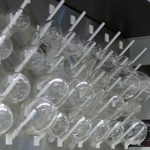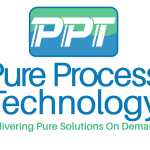
18 Apr 2019
When Hospitals Depend on Their RODI Systems to Ensure Patient Safety Through Best Practices.
The call came in, early on a busy Monday morning, the exasperated facility manager of a local area hospital was on the line. The hospitals RODI system was in urgent need of repair, could we help him, and how soon? PPT’s senior technician listened carefully as the issue was explained and determined that an immediate onsite visit was needed as the hospital only had one system which in addition to hospital lab testing, and pathology, was used to sterilize stainless steel surgical instruments. It was of vital importance that the issue was resolved quickly.
Determining the plan of action.
In addition to addressing the many unknown possible causes yet to be determined, all work had to be completed by 6 am to avoid interference with scheduled surgical procedures. Arriving at the pre-determined hour the PPT tech quickly recognized the hospitals RODI system as a 12 to 13-year-old sunsetted model and deduced that there was a bad relay on the circuit board. While it is true that a RODI system could theoretically last forever, the typical membrane life is about 2 to 5 years, depending on the nature of the water that it’s processing, and of course, as any machine is the sum of its parts, those parts may need to be replaced in a timely manner. However, when a system is antiquated, finding the right parts for replacement can be a major problem and negate upgrading attempts. For example, the original parts manufacturers may be unknown, the parts are now custom and/or only sold in Europe incurring long unacceptable delivery time.
A facilities manager needs solutions that work immediately and in the long run.
A temporary fix, to get the hospital system up and running, was immediately instituted with a recommendation that the system is replaced to prevent the need for a continuous series of band-aid repairs that would lead to the same offline results.
While the facilities manager was grateful for the immediate results, he reasoned that his ideal solution to ensure that RODI water would always be available was to purchase two new RODI systems and have one for backup in the event of a system going offline. While this was a practical idea on paper as well as a sales opportunity, the PPT tech, having hands-on knowledge of the system space requirements, pointed out that the hospital’s designated area was too small to handle the current system along with the two new ones as imagined by the facility manager. Putting client needs first is the goal of the PPT customer-centric approach.
Knowing the importance of RODI water.
 This may have been the end of the story, with an unhappy facilities manager left to solve a dilemma whose solution was not part of his knowledge base. He did know, from his attendance at numerous hospital conferences where sterile processing was discussed, that stainless steel surgical instruments took on a rusty tint when RODI water was not used in the cleaning process. Even though the lack of RO water has been known for years to cause problems, there are still many hospitals not employing RODI systems for sterile processing departments and hospital laboratory use. According to an article in ICT (Infectious Control Today) titled ‘Water for Instrument Processing’:
This may have been the end of the story, with an unhappy facilities manager left to solve a dilemma whose solution was not part of his knowledge base. He did know, from his attendance at numerous hospital conferences where sterile processing was discussed, that stainless steel surgical instruments took on a rusty tint when RODI water was not used in the cleaning process. Even though the lack of RO water has been known for years to cause problems, there are still many hospitals not employing RODI systems for sterile processing departments and hospital laboratory use. According to an article in ICT (Infectious Control Today) titled ‘Water for Instrument Processing’:
“…Water supports the growth of Gram-negative bacteria. Calcium, magnesium and pH can stain instruments and inactivate disinfectants. That is why distilled, reverse osmosis or deionized water is recommended for use dilution with all concentrated instrument cleaners and approved disinfectants.”1
Hands-On experience makes all the difference.
Did this hospital facility manager’s story end well? Yes, thanks to the PPT tech who placed concern with the customer’s needs first by offering a new quality RODI system so technically advanced that it eliminated the maintenance and downtime concerns, saving the hospital money. This philosophy coupled with the best RODI systems on the market today, and maintenance service options, offered a highly successful strategy for this hospital client.
If you are in the process of designing a medical facility, replacing an older RO water system, or in the market for a system that will fit your exact needs, call the experts who offer experience, ingenuity, and reliability with all their high purity water systems.
1 Water for Instrument Processing.: https://www.infectioncontroltoday.com/sterile-processing/water-instrument-processing

Does Your Project Water Distribu...
08 Jun 2019

Solvent Dispensing 101 – the Car...
15 May 2019

Hospital RODI Water System Proje...
18 Apr 2019

10 Apr 2019

27 Mar 2019